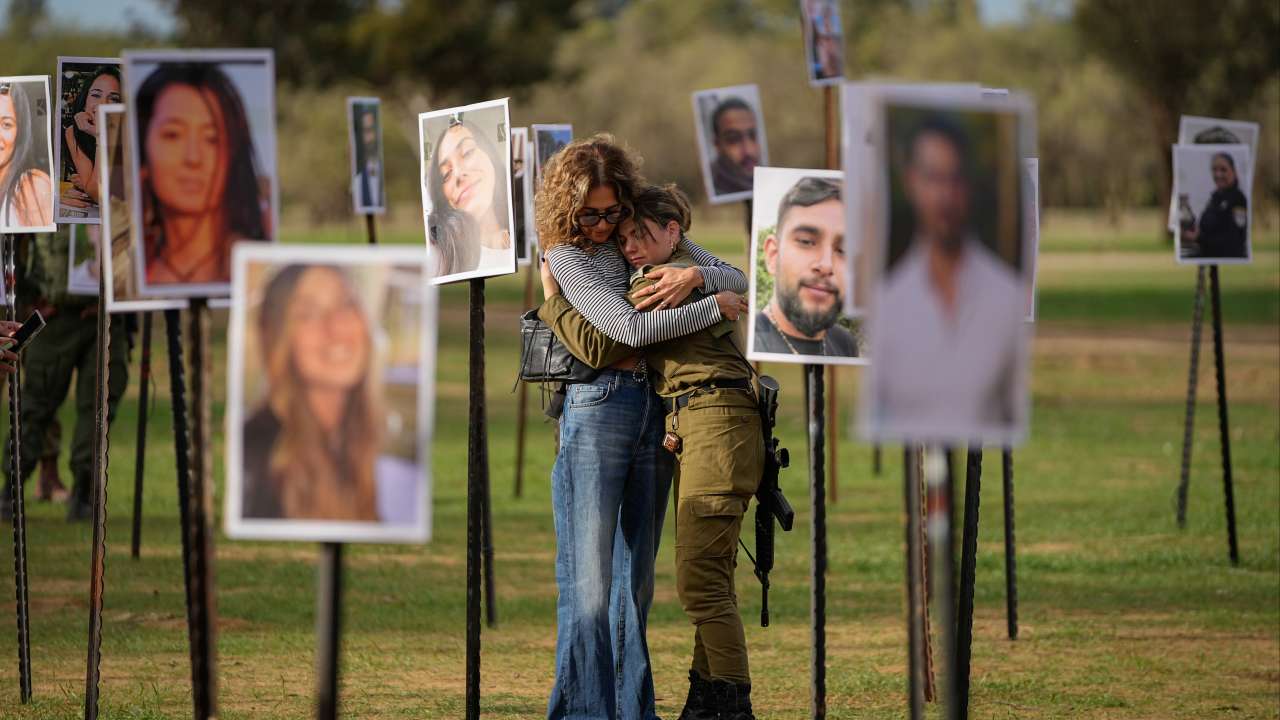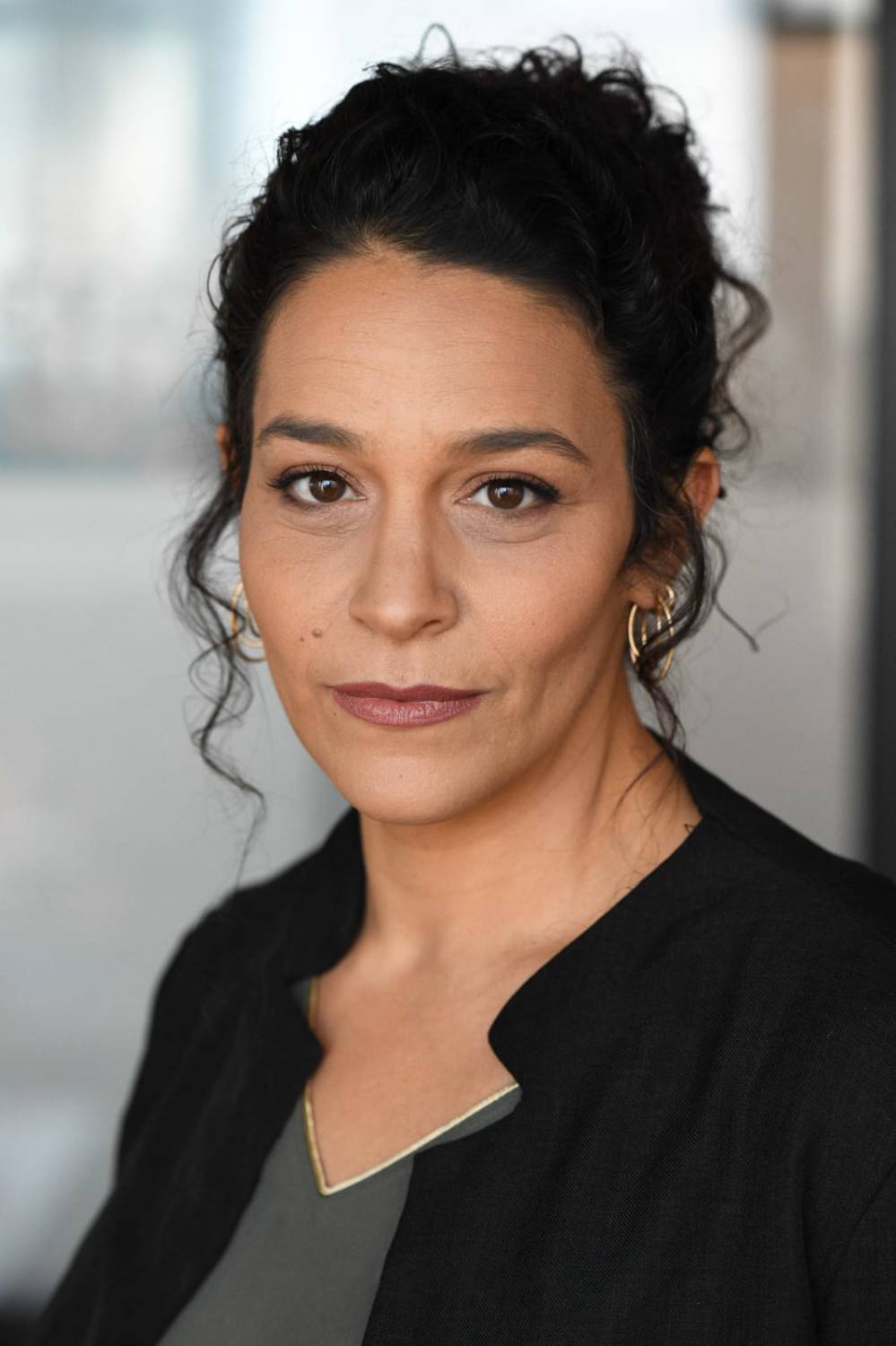Last week, an Israeli former Hamas hostage from the October 7 attack came forward and openly spoke about the sexual violence and torture she endured during her captivity. It was the first time a victim of Hamas gave a testimony about the tragic events she experienced.
Meanwhile, a UN report published in early March confirmed Israel’s months-long allegations of sexual violence by Hamas on the day of the attack and during the hostage-holding in Gaza, which, according to the report, is still ongoing.
In an interview with Phileleftheros, Ayelet Razin Bet-Or, a lawyer, former prosecutor, and women’s rights activist, explains that victims of sexual violence never truly leave their trauma behind. “I think victims learn to live with their wounds, which sometimes become more intense and sometimes less so over their journey. What they strive to do is not let their scars dominate their lives,” she says.
The Israeli lawyer also argues that Israeli women did not receive enough support from women’s and feminist organisations. As she stated, this is a setback for women’s rights. “This is not a political issue, and rape cannot be framed. In this case, it doesn’t matter if you support Israel or Palestine. It doesn’t matter. If we don’t openly and clearly state that these rapes were wrong and should not have happened, we are setting our demands back years.”
What was your involvement with the victims of Hamas’s October 7 attacks’ sexual violence? Why did you decide to take action?
I am a lawyer and a former criminal prosecutor. I also served as a legal advisor to associations for women’s rape and as director of the Authority for the Advancement of the Status of Women. I felt that my professional paths pushed me to take action at this particular time. When the attack happened, I was on a family vacation. After the initial shock, questions arose, and information started coming in about rapes, sexual assaults, and genital mutilation. Part of me wanted all of it to be exaggerations, but at the same time, I wanted to know exactly what had occurred.
Six months later, we know that we only saw the tip of the iceberg, and what happened surpassed even the most morbid imagination. The extent of the violence, terror, and pain recorded within a short period is terrifying. In one day, atrocities were committed, usually taking place in one or two years of war. So I started gathering information and working voluntarily with an ad hoc group of experts. We used our expertise to put the puzzle pieces together, understand what happened, and help the Israeli authorities offer the victims medical and psychological help and support. We also aimed to make what happened known outside of Israel.
We know that dozens of women were victims of sexual violence on October 7. Do you know what state they are in today?
First of all, let’s clarify that it’s not just about rape; it’s about gender-based violence, which can take various forms. It can be touching, rapes, often gang rapes. It can be mutilation, and we know that men and women were shot in their genital areas. Parading a naked body through the streets of Gaza is also gender-based violence. As far as I know, the victims who have survived are in the process of healing and dealing with their trauma. No victim has yet testified in a legal proceeding, nor have any legal steps been taken in that direction. For now, the priority is to heal their wounds.
During your career, you must have come across many victims of sexual violence. Do they manage to leave their trauma behind? What is their life like after such an event?
I don’t believe there is such a thing as ‘leaving the trauma behind.’ I think victims learn to live with their wounds, which sometimes become more intense and sometimes less so over their journey. What they strive to do is not let their scars dominate their lives. I know many victims of different types of sexual assaults who lead good, healthy, and active lives. But they never left their trauma behind; they just learned to live with it. However, it is essential to emphasise that the sooner a victim receives the correct treatment, the more likely they are to cope and heal.
Did the victims of sexual violence on October 7 receive the appropriate treatment? What kind of help did they receive from the Israeli government, especially during the war?
That is a valid question. It took some time to organise the situation, but the Ministry of Social Welfare developed programmes for these people who experienced collective trauma. It was an unprecedented situation, and managing it was challenging. I am aware that five survivors from the Nova festival, four women and one man who experienced sexual violence, turned to these programmes for help, while others sought private assistance.
It is important to mention that these individuals went through multiple traumas in a single day. They may have witnessed their loved ones being slaughtered, been shot themselves, or suffered a sexual assault. There are many stages of trauma that need to be addressed. And it is our responsibility as a society to create a safe environment for them to feel comfortable sharing their experiences and managing their trauma.
How do you comment on the stance taken by feminist organisations worldwide regarding the October 7 attack and the victims of sexual violence?
The reactions of feminist organisations were utterly discouraging to me, both as a feminist and a human rights activist. We know beyond a doubt that women’s bodies become part of the battlefield. This is not something that just happened in Israel; it occurs throughout human history. From Korea to Ukraine and Cyprus in 1974, women endure violence in wartime. Yet, we saw minimal support and a great deal of scepticism.
Why aren’t Israeli women believed? Why are there double standards, and why must they provide additional evidence of their ordeal? There is a detailed UN report on this issue, and the UN is the last organisation one could accuse of pro-Israeli bias. Still, little attention is given, and some even try to undermine the report.
So, you expected more feminist support on this issue?
Yes, of course. Because this is not a political issue, and rape cannot be framed. In this case, it doesn’t matter if you support Israel or Palestine. It doesn’t matter. If we don’t openly and clearly state that these rapes were wrong and should not have happened, we are setting our demands back years.
Last month was International Women’s Day. What achievements are we celebrating when we are still discussing this issue? There are 134 hostages, 19 of whom are women. We know, not from Israeli sources, that they are subjected to ongoing sexual violence, including rapes. Where did the ‘I believe her’ sentiment from the #MeToo movement go? How can they turn a blind eye and remain silent?
Do you have an explanation as to why Israeli women did not receive the necessary international support?
I have two answers, and unfortunately, neither is satisfactory. The first is the old, classic antisemitism. Even with evidence, some say it is a fabrication of artificial intelligence, and they choose not to believe it because it involves Israel. And the second is due to ignorance. Perhaps they haven’t taken the time to examine the evidence and listen to the victims. I hope that through my lectures, meetings, briefings, and contacts, I can contribute to changing this. And what I tell everyone is that, in any case, take the time to get informed. It doesn’t matter if you will be convinced or change your mind, but at least be informed.

Women must stand united
Generally, there has been a recent rollback against women’s achievements. For example, the right to abortion is being questioned, and policies are being adopted that set women’s rights back years.
You are absolutely right. That is why it is more critical than ever, in the case of Israel and everywhere else, to stand tall and keep talking about this issue. We must believe Israeli, Ukrainian, and Australian sisters and stand by their side. A few years ago, I came to Cyprus and protested in support of a British girl who accused Israelis of gang-raping her. This is what feminists should do: stand united.
Sexual violence in wartime is prohibited but rarely punished. Is there anything that can be done to change this? How can we ensure that criminals are brought to justice?
I am not an expert in international law, but I know that specific procedures are recognised for sexual assaults. However, the first step is acknowledging that sexual crimes are being committed. In this regard, Cyprus has maintained a strong stance and demonstrated its support for Israel. It has shown leadership, and its voice has been heard. The second step is to demand action. We must call for justice and not remain silent.
Allegations against the Israeli army
How do you view the fact that the Israeli army has also been accused of sexual assaults against Palestinian women?
If such a thing has occurred, it must be treated with the utmost seriousness, and we must use every legal and investigative tool at our disposal to examine it. Fortunately, Israel has a functional and fair legal system. As a criminal prosecutor, I have dealt with similar cases. However, at present, there is not a shred of evidence to justify the allegations, let alone initiate an investigation. When, where, and which unit is involved? We know nothing. It all started with a vague reference without a date, a hospital, or any details.
Nonetheless, my position is that there must be evidence and an investigation. Moreover, I want to say that if this is true, it is sporadic, not systemic, and it goes against the orders given by unit commanders to soldiers in the field. It is not leadership-sanctioned, as is the case with Hamas. The terrorists on October 7 had clear instructions to use sexual violence as a weapon of war. It was a planned strategy. But, returning to your question, if such an incident occurred, it is very serious and must be treated as such. We cannot allow it, and it is not the army we want.
Wouldn’t it surprise you if something like this, even sporadically, had happened? Isn’t it a fact that women also become sexual victims in wartime?
You are right that women always pay a heavy price in wars. In every conflict, we know that a woman is very likely to be a victim, especially of sexual violence. I am sceptical of the claims that Israeli soldiers sexually abused Palestinian women because those who made these allegations are deeply biased against Israel. As I said before, I am someone who believes women. I want the slightest indication that something like this happened. I want to hear the women themselves say it, and I will be the first to demand an investigation and the delivery of justice.
Do you know the condition of the hostages still in Hamas’s hands?
These people have been held for six months. There is clear evidence that they are subjected to sexual assaults and rapes. From testimonies and information, we know that they are entirely isolated and have no contact with each other. They are entirely dependent on Hamas terrorists. They are told that Israel no longer exists. They suffer from severe medical conditions, some pre-existing and some new. They are not adequately fed and may even be hungry in some cases. They live in appalling sanitary conditions. Their morale must have broken after so long, possibly in some tunnel.







